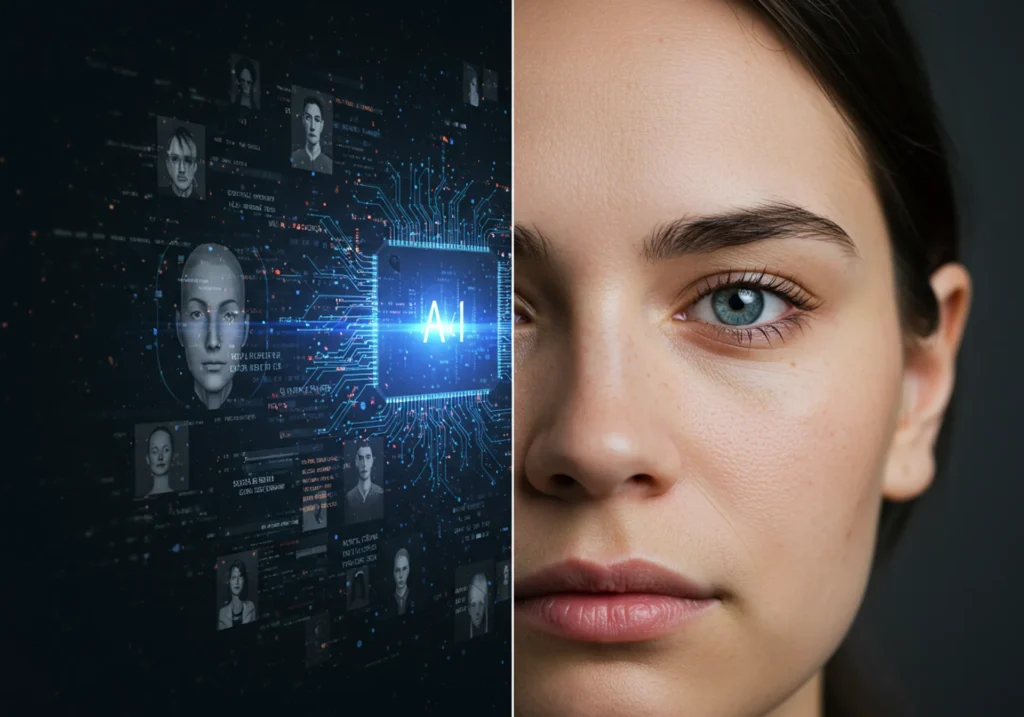Every generation faces a unique challenge that tests its ability to remain true to itself. For ours, that challenge is the rise of artificial intelligence. With AI writing our emails, curating our social feeds, generating art, and even influencing politics, one question rises above the noise: where does authenticity live in a world that increasingly feels manufactured?
The Rise of an AI-Driven Reality
Artificial intelligence is no longer futuristic — it is embedded in our daily lives. Recommendation algorithms tell us what to watch, AI filters decide what beauty looks like, and predictive text finishes our sentences. This growing reliance on automation creates an illusion of convenience, but it also masks an unsettling truth: our thoughts, preferences, and even identities are increasingly being shaped by machines.
According to The New Yorker, AI is beginning to dominate not just productivity but culture itself. It is writing novels, producing films, and generating music that can pass as human. While some celebrate this as innovation, others see a troubling erosion of the very thing that makes us human — our imperfect, unfiltered authenticity.
Authenticity as Resistance
When technology blurs the line between real and artificial, authenticity becomes an act of rebellion. It means choosing to show up as you are, with flaws, emotions, and contradictions intact. Unlike an algorithm designed to optimize for likes, sales, or engagement, human authenticity cannot be gamed. It is raw, sometimes uncomfortable, and always real.
Consider how easy it is to accept AI-created “truths” online. Newsfeeds are personalized echo chambers, shaping what we believe without us realizing it. Choosing authenticity in this climate means questioning what we see, resisting the urge to conform, and engaging in the messy process of finding and expressing our own inner truths.
The Cost of Losing Authenticity
If authenticity fades, the cost is immense. Creativity becomes homogenized, relationships become performative, and human voices risk being drowned out by machine-generated noise. Already, some social media users admit they can no longer tell if what they are reading was written by a person or by AI. The danger lies in mistaking convenience for truth, and efficiency for meaning.
This is why many people feel emotionally disconnected even in hyper-connected digital spaces. While AI can mimic empathy through programmed responses, it cannot feel the raw emotions of heartbreak, resilience, or joy. True human connection relies on those emotions — the very things algorithms cannot replicate.
Example: The Workplace
In workplaces, AI is rapidly transforming productivity. But employees increasingly express concern that over-automation strips away creative problem-solving and critical thinking. Real growth does not come from perfect answers instantly provided by a machine. It comes from the trial, error, and resilience of human experience. Internal struggle is where truth emerges.
Staying True in an AI-Overloaded World
So how do we preserve authenticity when AI is everywhere? Here are three practical ways:
1. Reclaim Your Voice
AI can write essays, poems, and even love letters. But your unique voice — the way you string words together, the quirks in your phrasing, the vulnerabilities you share — cannot be replicated. Reclaiming your voice means daring to write, speak, and create without outsourcing to a machine.
2. Practice Digital Mindfulness
Scrolling endlessly on curated feeds numbs our inner compass. Digital mindfulness means pausing to ask: “Do I believe this because it is true, or because it was suggested to me?” By interrogating the source of what we consume, we strengthen our ability to separate truth from manufactured perception.
3. Choose Human Connection
AI can mimic conversation, but it cannot provide genuine presence. Choosing human connection means prioritizing face-to-face interactions, raw conversations, and relationships built on empathy instead of algorithms. The difference between a chatbot’s “I understand” and a friend’s comforting silence is profound.
Why Our Inner Truth Matters
In a noisy digital world, inner truth acts as our compass. Without it, we risk being swept into narratives designed not to empower us, but to keep us distracted and compliant. Our authenticity is what prevents us from becoming passive consumers of artificial reality.
Think about it: when was the last time you paused to ask yourself if your decisions were truly yours? Whether it was what to wear, who to follow, or even what to believe, chances are algorithms played a role. But authenticity means reclaiming that power — choosing consciously, not automatically.
The Future of Truth in the Age of AI
AI is not going away. Its role in society will only expand, from healthcare to art to justice systems. The question is not whether we should resist AI altogether, but how we integrate it without losing the essence of our humanity. By staying rooted in authenticity, we ensure that AI serves us rather than replaces us.
This is where cultural critique becomes vital. We must keep questioning, keep peeling back the layers, and keep demanding more than efficiency. We must demand truth. As our previous reflections on honesty remind us, truth is transformative — it connects, it heals, and it liberates.
Final Thoughts
AI may offer speed, precision, and convenience, but it cannot offer authenticity. That is our unique human gift. Protecting it is not just a personal choice; it is a cultural responsibility. In a world where machines generate endless words, images, and sounds, choosing to live, speak, and create authentically is the loudest, most radical act of all.




